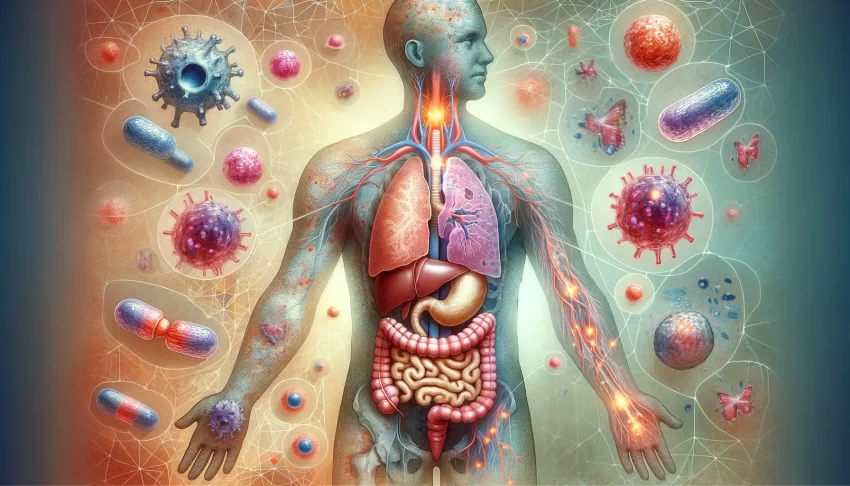| Listen to our audio presentation: Vitamin D and Health |
Autoimmune diseases represent a complex category of disorders where the immune system mistakenly attacks the body’s own tissues. Recent studies and advancements have provided new insights into the mechanisms of these diseases and potential treatments that could revolutionize care for millions of patients worldwide.
Recent Advances in Understanding Autoimmune Diseases
Research continues to uncover the multifaceted nature of autoimmune disorders, which can target almost any part of the body. The diversity of these diseases, including rheumatoid arthritis (RA), multiple sclerosis (MS), systemic lupus erythematosus (SLE), and Type 1 diabetes (T1D), presents a significant challenge in understanding and treating each condition effectively. Recent studies have identified specific biomarkers and advanced diagnostic methods that could lead to earlier detection and more personalized treatment plans (Frontiers) (Nature).
One of the notable advancements in the treatment of autoimmune diseases involves the use of CAR-T cell therapy. Traditionally used in cancer treatment, CAR-T cell therapy has shown promise in forcing certain autoimmune diseases into remission. This therapy involves reprogramming the patient’s T cells to attack diseased or malfunctioning cells within the immune system itself, offering hope for durable and potentially curative treatments (Nature).
Potential Treatments on the Horizon
Innovative research from the Okinawa Institute of Science and Technology has highlighted potential new treatments that could modify immune responses and alleviate symptoms of autoimmune disorders. Such advancements are crucial as they offer the prospect of treatments that are less invasive and with fewer side effects compared to current options (ScienceDaily).
Moreover, a broader understanding of autoimmune disease epidemiology is developing through research efforts that focus on the genetic, environmental, and social factors influencing these diseases. These studies are vital for developing targeted therapies that address the root causes of autoimmunity and prevent disease progression (Frontiers).
Future Directions
The future of autoimmune disease research and treatment looks promising with the continued exploration of genetic markers, the impact of lifestyle and environmental factors, and the development of innovative therapies like CAR-T cells and other biologic drugs. The ongoing challenge will be to translate these discoveries into safe, effective, and accessible treatments that can be personalized to meet the unique needs of each patient.
These breakthroughs represent a beacon of hope for those affected by autoimmune diseases, potentially leading to better quality of life and outcomes. As research progresses, it is expected that these novel approaches will not only improve management of these conditions but possibly lead to cures for some of the most challenging autoimmune disorders.

